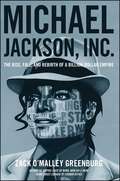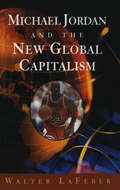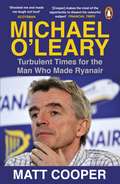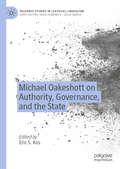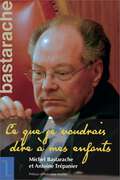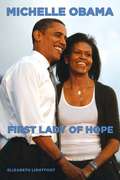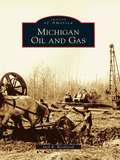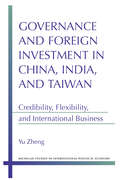- Table View
- List View
Michael Jackson, Inc.
by Zack O'Malley GreenburgThe surprising rags-to-riches-to-rags-to-riches story of how Michael Jackson grew a billion-dollar business.Michael Jackson is known by many as the greatest entertainer of all time, but he was also a revolutionary when it came to business. In addition to famously buying the Beatles' publishing catalogue, Jackson was one of the first pop stars to launch his own clothing line, record label, sneakers, and video games--creating a fundamental shift in the monetization of fame and paving the way for entertainer-entrepreneurs like Jay Z and Diddy. All told, Jackson earned more than $1.1 billion in his solo career, and the assets he built in life have earned more than $700 million in the five years since his death--more than any other solo music act over that time. Michael Jackson, Inc. reveals the incredible rise, fall, and rise again of Michael Jackson's fortune--driven by the unmatched perfectionism of the King of Pop. Forbes senior editor Zack O'Malley Greenburg uncovers never-before-told stories from interviews with more than 100 people, including music industry veterans Berry Gordy, John Branca, and Walter Yetnikoff; artists 50 Cent, Sheryl Crow, and Jon Bon Jovi; and members of the Jackson family. Other insights come from court documents and Jackson's private notes, some of them previously unpublished. Through Greenburg's novelistic telling, a clear picture emerges of Jackson's early years, his rise to international superstardom, his decline--fueled by demons internal and external, as well as the dissolution of the team that helped him execute his best business moves--and, finally, his financial life after death. Underlying Jackson's unique history is the complex but universal tale of the effects of wealth and fame on the human psyche. A valuable case study for generations of entertainers to come and for anyone interested in show business, Michael Jackson, Inc. tells the story of a man whose financial feats, once obscured by his late-life travails, have become an enduring legacy.
Michael Jordan and the New Global Capitalism (New Edition)
by Walter LafeberWalter LaFeber's timely analysis looks at the ways that triumphant capitalism, coupled with high-tech telecommunications, is conquering the nations of the world, one mind--one pair of feet--at a time. With Michael Jordan and the New Global Capitalism, Walter LaFeber has written a biography, a social history, and a far-ranging economic critique. From basketball prodigy to international phenomenon to seductive commercial ideal, Michael Jordan is the supreme example of how American corporations have used technology in a brave, massively wired new world to sell their products in every corner of the globe. LaFeber's examination of Nike and its particular dominion over the global marketplace is often scathing, while his fascinating mini-biography of Michael Jordan and the commercial history of basketball reveal much about American society. For this new paperback edition, LaFeber has added a chapter on globalization in a changed world, after mass protests and since September 11. "Bold, riveting....Brilliantly illuminates how hyper-US capitalism has spread its financial wings around the globe."--Douglas Brinkley "LaFeber brings an impressive intellect to bear on his subject."--Barbara Rudolph, Chicago Tribune
Michael Ku and Global Clinical Supply at Pfizer Inc.: Bringing Hope to Patients (A)
by Linda A. Hill Allison J. Wigen Emily TedardsMichael Ku joined Pfizer in 2011, after the company had undergone three large-scale mergers and acquisitions. His mission was to drive the digital transformation of the company's clinical supply chain, but he knew he had to start with the culture. Over the next eight years, Ku and his leadership team put in place the culture, talent, structure, and processes necessary to prime the clinical supply chain for digital transformation. By 2019, the clinical supply chain had made significant progress toward becoming the agile, innovative organization necessary to support Pfizer's new ambition to focus exclusively on developing innovative medicines and vaccines. Ku knew there was more to be done before they could maximize their digital and innovation efforts. He had asked his leadership team to come up with a proposal to improve decision-making in the organization.
Michael Ku and Global Clinical Supply at Pfizer Inc.: Bringing Hope to Patients (B)
by Linda A. Hill Emily TedardsIn 2011, Michael Ku became Pfizer's Vice President of Global Clinical Supply (GCS) after the company had undergone three large-scale mergers and acquisitions. As Ku and his new leadership team set out to build a proactive, end-to-end, digital and physical clinical supply chain, they put in place a "Patients First" culture, developed their digital capabilities, and built out their global footprint. By 2019, GCS had made significant progress toward becoming the agile, innovative organization necessary to support Pfizer's new ambition to focus exclusively on developing innovative medicines and vaccines. Ku and his leadership team felt the time had come to implement a new cross-functional decision-making hub. They also decided to pilot a 24-hour, 5 day a week workforce model with a team of clinical pharmacists in Manila. Just as they were beginning to onboard their first hires, COVID-19 struck. GCS found itself on the front lines having to supply Pfizer's vaccine candidate and investigational antiviral studies, while also ensuring continuity of clinical supply to hundreds of other trials across the globe. By July 2020, the five-person Manila team-all of which had been on-boarded virtually-had come to play a critical role in GCS's productivity. With Phase 3 of the vaccine candidate trial looming, Ku and his leadership team had decided to double the size of the Manila team by the end of 2020. The question was, who would lead the team?
Michael Lester at Lachlan Consulting
by Anthony J. Mayo Joshua D. MargolisMichael Lester, a consultant with Lachlan, was frustrated by his client's unwillingness to provide key data for an important presentation. Lester must decide how best to confront Nadine Robert, his client, knowing that his personal success and the reputation of his consulting firm hinge on his ability to build and sustain a strong relationship. How firm should he be with the client? What type of feedback would help this situation?
Michael Milken: The Junk Bond King
by Matthew Preble Tom NicholasMichael Milken, an investment banker who dominated the junk bond market in the 1980s, was sentenced to jail in 1990 after pleading guilty to a number of securities and tax related felonies. In the preceding decade, Milken had helped usher in a new wave of leveraged buy outs (LBOs) and greatly changed the structure of corporate America. By the late 1980s though, Milken and junk bonds became more heavily scrutinized, and Milken was eventually implicated in a number of felonious acts. Even after his admission of guilt, however, observers remained divided on what Milken's true impact had been. Was he simply a misunderstood financial innovator who democratized access to capital? Or was he driven purely by greed and by nefarious personal financial motives?
Michael Milken: The Junk Bond King
by Matthew Preble Tom NicholasMichael Milken, an investment banker who dominated the junk bond market in the 1980s, was sentenced to jail in 1990 after pleading guilty to a number of securities and tax related felonies. In the preceding decade, Milken had helped usher in a new wave of leveraged buy outs (LBOs) and greatly changed the structure of corporate America. By the late 1980s though, Milken and junk bonds became more heavily scrutinized, and Milken was eventually implicated in a number of felonious acts. Even after his admission of guilt, however, observers remained divided on what Milken's true impact had been. Was he simply a misunderstood financial innovator who democratized access to capital? Or was he driven purely by greed and by nefarious personal financial motives?
Michael O'Leary: Turbulent Times for the Man Who Made Ryanair
by Matt CooperFinancial Times Business Book of the MonthSeptember 2017. Ryanair cancels over 700,000 bookings and its powerful PR juggernaut comes shuddering to a halt. For once, the airline's aggressive and flamboyant CEO, Michael O'Leary, is contrite and apologetic.A month later Ryanair announces increased passenger traffic for October, year-on-year growth and increased profits. Its share price soars. For the moment, it appears, a fundamental shake-up of Europe's biggest airline is off the table. But questions remain about the causes of the debacle and O'Leary's role in it.Michael O'Leary lifts the veil on the wildly successful and wildly controversial Ryanair CEO. Based on extensive research - including with close associates of O'Leary - the book examines O'Leary's personality, beliefs and obsessions and describes how these have moulded the business he runs. Written by a multi-award-winning journalist and broadcaster, with a thirty-year career covering business and current affairs, it is a fascinating insight into the business behind the man, and the man behind the business.'Fascinating book ... very comprehensive' Eamon Dunphy, The Stand'An indispensable guide for anyone who wants to understand not just where Michael O'Leary and Ryanair are coming from, but where they are going.' Sunday Business Post'A frequently enlightening unauthorised biography ... entertaining' Irish Independent'In a world of colourless corporate leaders, Ryanair's aggressive, mouthy chief executive provides catnip for journalists. Cooper, an award-winning Irish writer and reporter, makes the most of the opportunity to dissect his colourful subject' Book of the Month, The Financial Times
Michael Oakeshott on Authority, Governance, and the State (Palgrave Studies in Classical Liberalism)
by Eric S. KosMichael Oakeshott on Authority, Governance, and the State presents contributions on one of the most important British philosophers of the 20th century. These essays address unique and under-analyzed areas in the literature on Oakeshott: authority, governance, and the state. They draw on some of the earliest and least-explored works of Oakeshott, including his lectures at Cambridge and the London School of Economics and difficult-to-access essays and manuscripts. The essays are authored by a diverse set of emerging and established scholars from Europe, North America, and India. This authorial diversity is not only a testimony to the growing international interest in Oakeshott, but also to a plurality of perspectives and important new insights into the thought of Michael Oakeshott.
Michael Ovitz and The Walt Disney Co. (A)
by Jay W. Lorsch Alexis ChernakFaced with the need to hire a new president, The Walt Disney Co. pursued Michael Ovitz, a founder of the Creative Artist Agency. Although initially disinterested, Ovitz engaged in negotiations with Michael Eisner, CEO of The Walt Disney Co., in the summer of 1995 before accepting an offer. Ovitz officially began as president on October 1 of that year. While the hiring of Ovitz was at first heralded as a coup for Disney, Eisner and senior executives began to have doubts about Ovitz's fit with the company culture. By the summer of 1996, Eisner decided Ovitz had to be fired. He began conversations with members of the board of directors, who agreed Ovitz's contract should be terminated. Ovitz left the company at the end of the year with a sizable severance package.
Michael Rubin and Fanatics (A)
by Robert F. Higgins John MaskoIn 2016, Michael Rubin's Fanatics was the U.S.' largest sports e-commerce company, and operator of the official online store for all the major American sports leagues. That year, Fanatics began to dabble in manufacturing licensed sports merchandise, securing limited permissions from leagues to manufacture apparel in response to 'micro-moments,' sudden surges of interest in a team or player that were too abrupt for the league's usual licensees to react to. The success of these efforts raised the possibility that Fanatics might make a play to displace a major athletic wear manufacturer as the official merchandise licensee of a major sports league. For a company with little manufacturing infrastructure and experience however, it was unclear whether this was an advisable step for Fanatics, or how they would go about it.
Michael Solomonov: Jerusalem in a Bowl
by Boris Groysberg Katherine Connolly Baden Evan M S HechtBefore the COVID-19 pandemic hit, Michael Solomonov and Steven Cook had begun to wonder whether it might be time to rethink their opportunistic approach to the expansion of their small restaurant empire in Philadelphia, CooknSolo. The pandemic, however, caused an abrupt and intense change of focus-the goal was no longer expansion, but survival. Solomonov had overcome much in his life, including addiction and the death of his younger brother; these experiences had given him the perspective to take on great challenges in his career, the COVID-19 pandemic being the greatest challenge yet. As the economy cautiously started to reopen in June 2020, how should Solomonov and Cook proceed? How should they think about their business in terms of survival through the duration of the pandemic and set themselves up to come back even stronger in the post-pandemic world?
Michał Kalecki, An Intellectual Biography: Volume 1, Rendezvous in Cambridge 1899–1939 (Palgrave Studies in the History of Economic Thought)
by Jan ToporowskiThis volume of intellectual biography takes the Polish economist Micha Kalecki (1899-1970) from the shattering of his prosperous childhood, in Tsarist Łódź in the 1905 Revolution, to Cambridge and the failure of his co-operative research with John Maynard Keynes's supporters in Cambridge.
Michał Kalecki: Rendezvous In Cambridge, 1899-1939 (Palgrave Studies In The History Of Economic Thought)
by Jan ToporowskiThis volume of intellectual biography records the work of Michał Kalecki’s maturity: his work on monetary economics and the theory of profits; his work on the problems of socialism and developing countries; and the extension of his theory of capitalism to define his work in relation to Keynes and previous political economic principles. Kalecki had, by 1939, laid out the essential elements of his theory of the business cycle in capitalism. This book begins at Oxford where, at the Institute of Statistics, he worked on the economic planning and financing of World War Two, as well as extending and detailing the particulars of his theory and examining the conditions for full employment in the post-War international monetary and financial system. Kalecki would then work for the United Nations on full employment, inflation, and developing countries. He departed from the United Nations in 1955, and returned to Poland to extend two new directions of his ideas – on the economics of developing countries and his theory of growth in the socialist economy, alongside further work on business cycles.This book is essential reading for all those who want to understand Kalecki’s lasting contribution to economic theory and policy.
Michel Bastarache: Ce que je voudrais dire à mes enfants (Biographies et mémoires)
by Antoine Trépanier Me Michel BastaracheDans une lettre qu’il adresse à ses deux enfants, morts d’une maladie incurable, Michel Bastarache se rappelle son enfance en Acadie puis sa carrière, jusqu’à devenir le premier juge acadien à siéger à la Cour suprême du Canada. Me Bastarache raconte sa constante lutte pour l’égalité des communautés francophone et anglophone. Il revient sur son engagement au sein des groupes de défense des francophones hors Québec, puis sur sa carrière de professeur, de fonctionnaire, d’avocat et de juge. Dans ce récit, il amène le lecteur dans les coulisses de ses plus importantes causes et révèle certains secrets du plus haut tribunal canadien. Me Bastarache réagit également à la polémique entourant la Commission d’enquête sur le processus de nomination des juges du Québec et sur son travail à titre de médiateur dans le processus de réconciliation et de compensation pour les victimes alléguées d’agressions sexuelles par d’anciens prêtres au Nouveau-Brunswick. Publié en français
Michelin's Green Gold Bahia Program: Leaving With Grace
by Sandra J. Sucher Susan Winterberg Shalene GuptaIn 2015, the top management of French tire-maker Michelin, was evaluating Michelin's approach to divesting its rubber plantations ten years after incorporating a novel strategy. In 2004, Michelin had a Brazilian rubber challenge. Its Bah a plantation had been hit with the South American Leaf Blight fungus, the same fungus that destroyed Henry Ford's dreams of industrializing rubber production, and the plantation's productivity had dropped. Bah a had to go. That much was clear. But how to do it? From the Michelin headquarters in Clermont-Ferrand, the rubber plantations of Bah a Brazil seemed half a world away. Still, Michelin, then led by douard Michelin, great-grandson of Michelin's founder, was founded with a deep belief in the importance of treating its employees and the environment fairly. Michelin embarked on an ambitious plan to divest the plantation while practicing corporate social accountability. However, in doing so, it had to understand the needs of its plantation workers, its environmental impact, while also considering its own needs as a business. Now, Michelin had to evaluate how well the company had done with its Bah a program, if there was anything that could be improved in its divestment process, and whether or not the plan, or elements of it, was something Michelin should consider using again in the future.
Michelle Levene (A)
by Tiziana Casciaro Victoria W. WinstonMichelle Levene discovers that she is pregnant a few days before receiving an offer for her dream job. The new position would require Levene to travel extensively, something she would not be able to do towards the end of the pregnancy and while caring for a newborn. Levene has been with biotech leader Genzyme Corp. for two years and cannot imagine a better professional opportunity than the new position at this stage in her career. Should she accept the job, telling her new manager that she is pregnant? Should she accept the job but wait a few months to discuss the pregnancy--after all, this is her first baby and who knows what might happen? Or should she meet with the new manager and tell him that under the circumstances, she would expect him to rescind the verbal offer?
Michelle Obama: First Lady of Hope
by Elizabeth LightfootFrom Lady Bird Johnson's highway beautification initiative to Jacqueline Kennedy's White House renovation to Barbara Bush's literacy project - and let's not forget Nancy Reagan's "Just Say No" program - first ladies have captivated and enthralled the voting public for 200 years. Michelle Obama has played an influential role in her husband's campaign, and is certain to do the same during his presidency. Michelle Obama: First Lady of Hope examines, for the first time, her astonishing career - from her undergraduate years at Princeton, where she majored in African Studies, to her studies at Harvard Law School, where she obtained a Juris Doctor degree. This fascinating book will further address her influence on her husband, her role in his presidential campaign, and her political beliefs. Michelle Obama is sure to be one of the most intriguing and influential First Ladies in history. She first met Barack Obama when she was asked to serve as his mentor at a prestigious Chicago law firm. She and Barack were the only African-Americans. The couple married in 1992. She is her husband's closest advisor. A Chicago native, she has attracted much media attention for her candor and frankness. This trait will serve her well in the White House, where no move or statement goes unnoticed.
Michigan Beer: A Heady History (American Palate)
by Patti F. SmithMichigan's beer history is as diverse as the breweries themselves, and the stories behind them are as fascinating as their tasty concoctions.A few enterprising women found themselves at the forefront of early brewing in the state, and several early Detroit brewers also served as mayor. Pfeiffer's mascot was designed by Walt Disney Studios. Jackson's Eberle Brewing Company took its fight against local prohibition all the way to the Supreme Court, and the Silver Foam trademark embroiled disputants in a different legal fight. Renowned modern craft brewers grew from humble beginnings, often staving off financial disaster, to establish themselves as local, or even national, juggernauts.Grab your favorite brew and join author Patti F. Smith for a look at Michigan's distant brewing past and its recent triumphs.
Michigan Criminal Law and Procedure: A Manual for Michigan Police Officers (2nd Edition)
by Michigan Department of State PoliceSeveral legal instructors throughout the state of Michigan contributed to the development of this and previous editions of this book in hopes that it will help police officers and police recruits comprehend the legal parameters that they operate within on a day-to-day basis.
Michigan Manufacturing Corp.: The Pontiac Plant--1988
by Clayton M. ChristensenMichigan Manufacturing is a broad-line maker of components for the automotive industry. It has developed a network of nine plants as its product line has grown. Newer, higher-volume products tend to be made in newer, focused, high-volume plants, while older product lines tend to be assigned to the Pontiac plant, the oldest one in the system. Because Pontiac produces such a wide variety of products, its overhead costs are very high. Management needs to decide whether to close the Pontiac plant or find a way to make it profitable.
Michigan Oil and Gas
by Jack R. WestbrookMichigan is commonly recognized as a manufacturing center and for its splendid tourist attractions. Lesser known is Michigan's role as a leader in the production of oil and gas. Since the discovery of commercial quantities of oil in Saginaw in 1925, Michigan has grown to become the 12th-largest natural gas and 17th-largest crude oil producer of the 34 states producing oil and gas. Michigan's petroleum heritage spans 64 of the state's 68 Lower Peninsula counties and has played a role in shielding communities from the financial devastation of the Great Depression, funding acquisition of hundreds of public recreation projects through the Michigan Natural Resources Trust Fund, and rising to meet environmental challenges through improving technologies. Michigan Oil and Gas documents that heritage with photographs from the Clarke Historical Library Norman X. Lyon and Michigan Oil & Gas News Collections.
Michigan Studies In International Political Economy: Credibility, Flexibility, And International Business
by Yu ZhengYu Zheng challenges the idea that democracy is the prerequisite for developing countries to attract foreign direct investment (FDI) and promote economic growth. He examines the relationship between political institutions and FDI through the use of cross-national analysis and case studies of three rapidly growing Asian economies with a focus on the role of microinstitutional "special economic zones" (SEZ). China's authoritarian system allows for bold, radical economic reform, but China has attracted FDI
